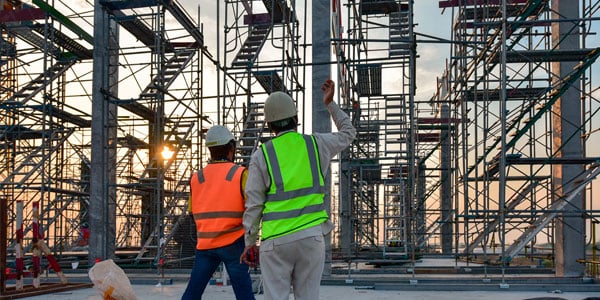A certain percentage of developers and investors shy away from applying for commercial construction loans because gaining approval seems out of reach. While it’s true that lenders tend to be rigorous in their review of commercial construction loans, that’s largely because projects do not always succeed. But the fact these loan products are thoroughly audited proves beneficial to potential borrowers. Finding soft points in a construction plan early prevents setbacks later.
When developers and investors come to the process with a viable business plan, reasonable creditworthiness, and collateral, commercial construction loans rank among the best options for funding a build. There are a wide range of financial packages available worth pursuing. The following information may help dispel any misconceptions about commercial construction loans and how they can be utilized to achieve your business goals.
What are Commercial Construction Loans?
Commercial construction loans are available to qualified borrowers to fund projects such as new builds, expansions, and renovations to non-residential properties. After gaining approval from a lender, the funds can be deployed to pay for materials, contractors, labor, and services provided by engineers and architects, among others. Commercial construction loans may also be tapped to prepare a raw land for builders, well drilling, and utilities. In this regard, commercial construction loans are something of a soup-to-nuts resource for developers, investors, and property owners.
It's important to distinguish these lending products from commercial real estate loans. The focus of the latter typically involves purchasing a commercial building and sometimes making renovations or funding the purchase of necessary equipment, among other business needs. Developers and investors who secure commercial construction loans also find they can function quite differently than other resources.
How do Commercial Construction Loans Work?
Borrowers typically pursue loan products structured in one of two ways. Securing a variety of business term loans and personal loans usually results in receiving a lump sum amount that can be used for specific or discretionary purposes. Qualifying for a business line of credit gives organizations and individuals access to funds that can be leveraged on a need basis. The value of a line of credit resides in users withdrawing only what they need and replenishing the resource through repayment. Commercial construction loans mirror neither of these options.
Unlike other types of financing, commercial construction loans are not necessarily paid to the borrower upfront. The loan is usually disbursed incrementally when certain construction thresholds are completed. These benchmarks are agreed upon during the loan processing period. In terms of qualifying for commercial construction loans, applicants can anticipate lenders requiring the following.
- Business Credit Score and Repayment History
- Personal FICO Score and History
- Business Tax Returns for the Last Three Years
- Personal Tax Returns for the Prior 2-3 Years
- Date of Incorporation and Length of Operations
- Three Years of Profit and Loss Statements
- Bank Statements and Financial Activities
- Documentation of Assets Used for Collateral
Lenders usually require a detailed business plan that includes revenue projections and cost-to-value metrics. If the company has a small number of decision-making partners, the lender may also review their creditworthiness as well. These are other subtle financial differences to consider.

Allocation and Payment Structure
Contractors and professional services outfits are usually aware that money will be released at certain points in the construction project that correlates with their portion. For example, the company that pours the foundation may expect payment when the forms are removed, and the concrete slab passes inspection. Crews that perform ongoing tasks, such as carpentry contractors, may receive revenue in phases. This commercial construction loan strategy helps ensure the project moves forward and is completed on schedule.
Interest Rates
The interest rates differ significantly depending on the lender and borrower’s qualifications. Commercial construction loans can come with interest rates as low as 2 percent or as high as 18 percent, in some cases. Developers and investors may be well-served to consider lower rates and more favorable terms offered by local lenders.
Fees
These commercial loan products typically involve Guarantee Fees, Processing Fees, Documentation Fees, Project Review Fees, and Fund Control Fees. It’s important to understand these charges are linked to costs incurred by lenders who are tasked with overseeing a variety of financial aspects of the project’s funding. However, local lenders may be able to minimize the fees or waive some entirely.
Down Payment
Even the most well-thought-out construction project is considered a high-risk endeavor. That’s why lenders usually require borrowers to put down 10 to 30 percent of the project’s total cost. It’s rare for experienced lenders to waive this level of down payment due to the substantial percentage of construction projects that do not come to fruition.
To discover how commercial real estate loans can help your business, download our free guide:
What types of Commercial Construction Loans Exist?
When pursuing financing, it’s essential to understand a variety of commercial construction loans are available. These products are designed to fund specific types of projects and generally account for their inherent differences. The following rank among the common commercial constructions loans reliable lenders typically offer qualified borrowers.
- Land Development Loans: Considered high-risk loans, the raw purchased land is usually collateralized. Lenders view this as a less secure asset because undeveloped land tends to represent only a small percentage of the total project’s value. To offset that risk, borrowers may be tasked with using additional assets as collateral to secure the loan. Lenders prefer borrowers with an established construction track record when approving land development loans. Once approved, the funds can be put to work clearing the parcel and adding infrastructure.
- Acquisition and Development Loans: Also referred to by industry insiders as A&D loans, they often cover the cost of purchasing raw or partially cleared parcels. The proceeds can also be used for development, and any pre-construction enhancements deemed necessary.
- Mini-Perm Loans: These temporary financing options are issued after a construction project has been completed and a Certificate of Occupancy has been issued for the building. The revenue is typically used to settle cost overruns or unanticipated expenses. Mini-perm loans can also be leveraged to stabilize the day-to-day operations of a facility until it generates a steady revenue stream.
- Takeout Loans: This loan product represents a type of permanent mortgage assigned to a construction project. They are often used to swap out short-term financing, such as mini-perm loans. Takeout loans typically offer lower interest rates and longer repayment schedules that reduce monthly obligations.
Industry professionals with a construction vision would also be well-served to vet the lending sector and apply for financing with a reputable organization.
How to Finance Commercial Construction Loans
Applying for commercial construction loans involves gathering wide-reaching documents that demonstrate borrowers possess collateral and a plan likely to succeed. Underwriters scrutinize the detailed business plan accompanying the loan application to determine whether the local marketing conditions support such as facility. Loan professionals also conduct due diligence on the hard construction numbers to ensure the project’s budget covers all the costs and accounts for common overruns.
If commercial construction loans don’t seem to coincide with what loan option you had in mind for your business, contact your local credit union about alternative commercial real estate loan options such as business term loans, business lines of credit, and trade finance solutions.
At Carolina Trust Federal Credit Union, we know that sometimes, you need a little extra money to maintain and grow your business, and we get it. Whatever it may be, don’t worry— we’ve got a loan for that.




